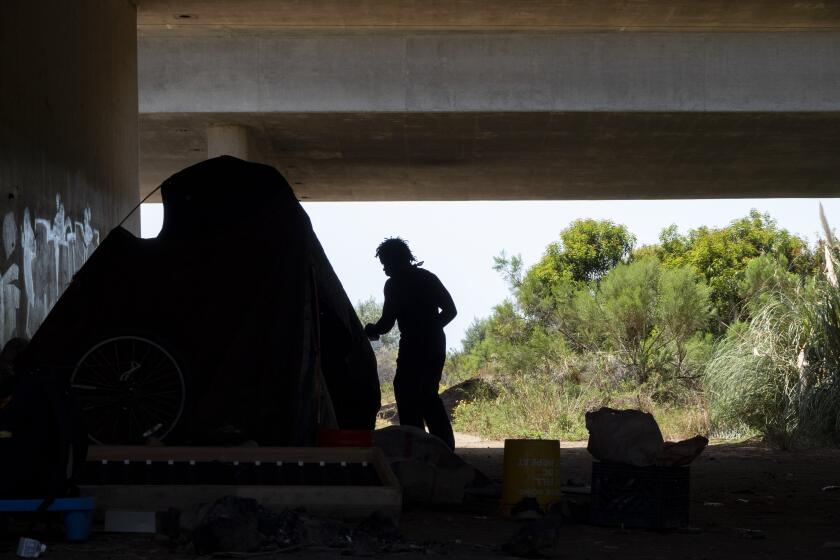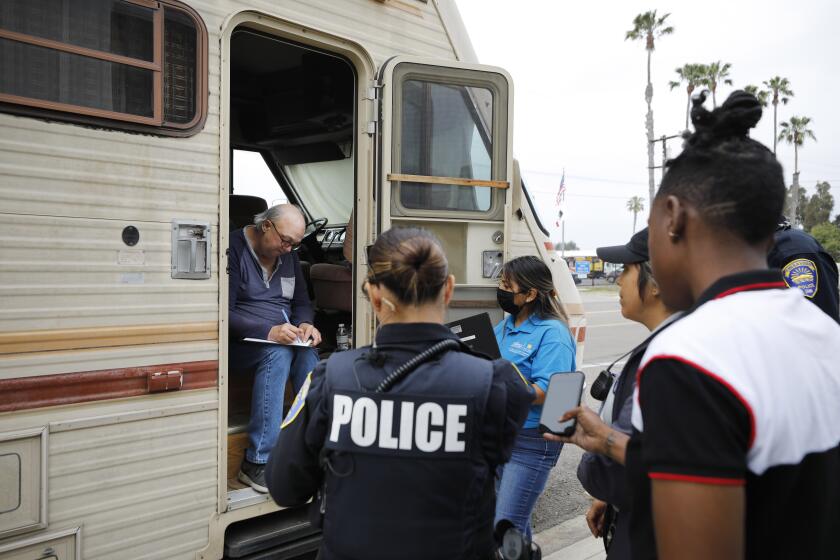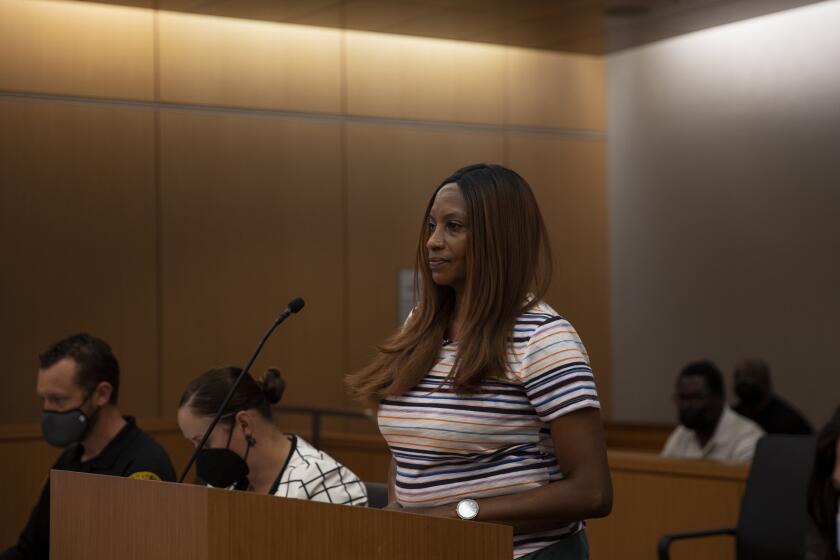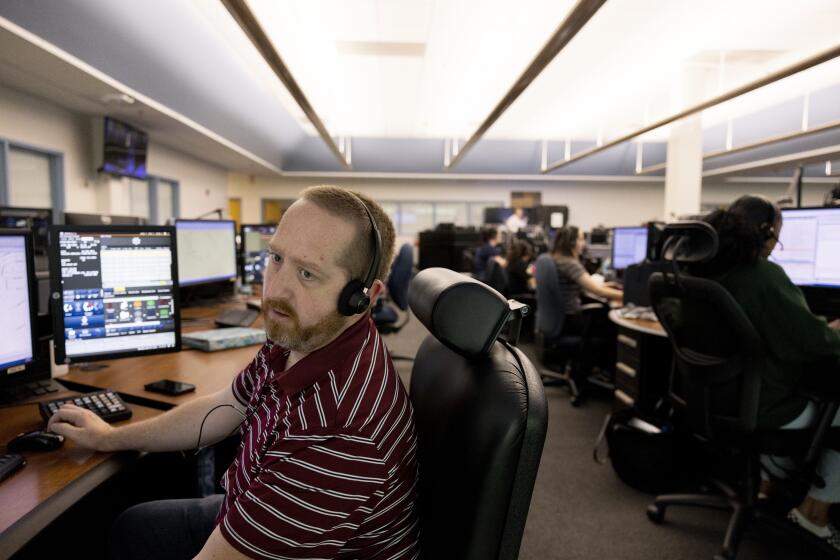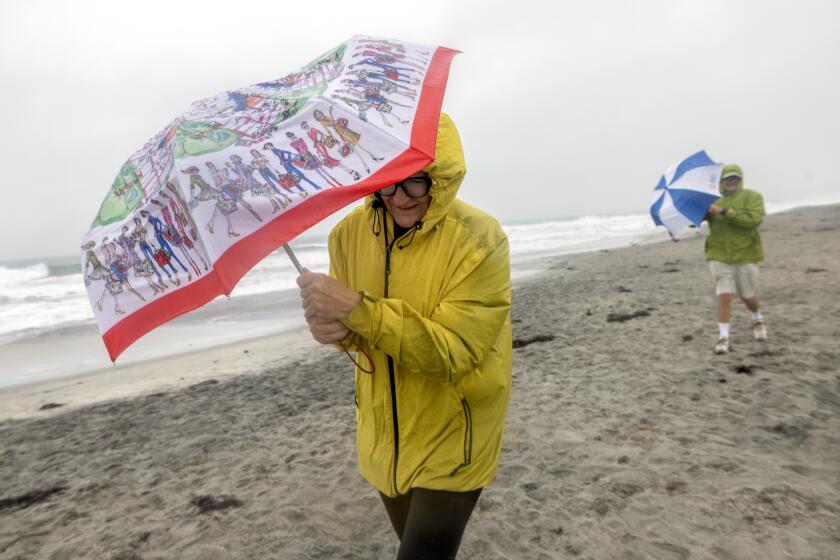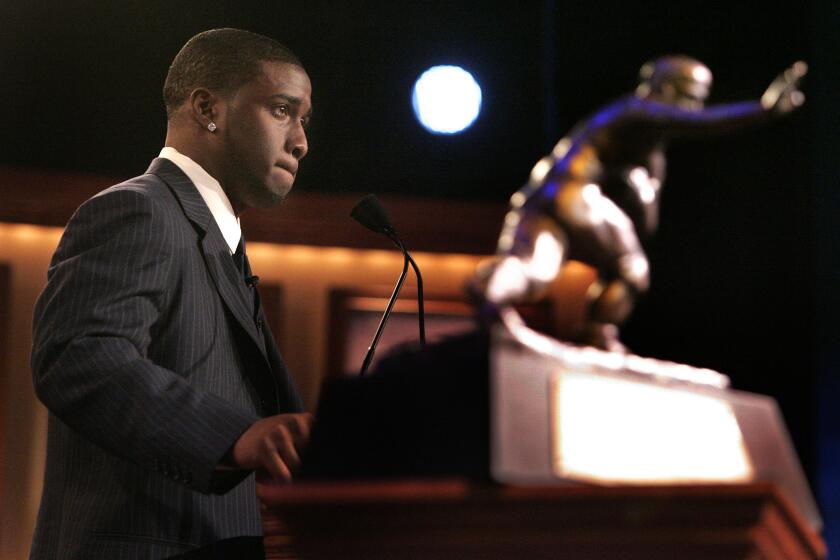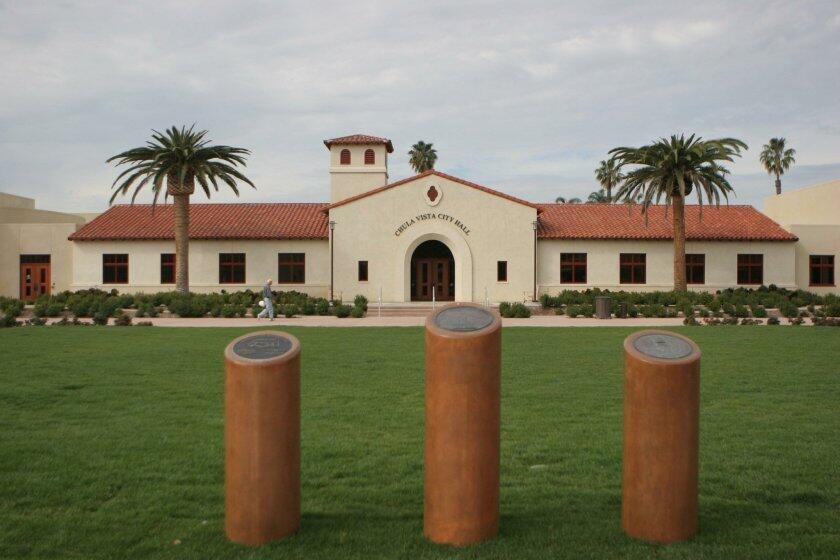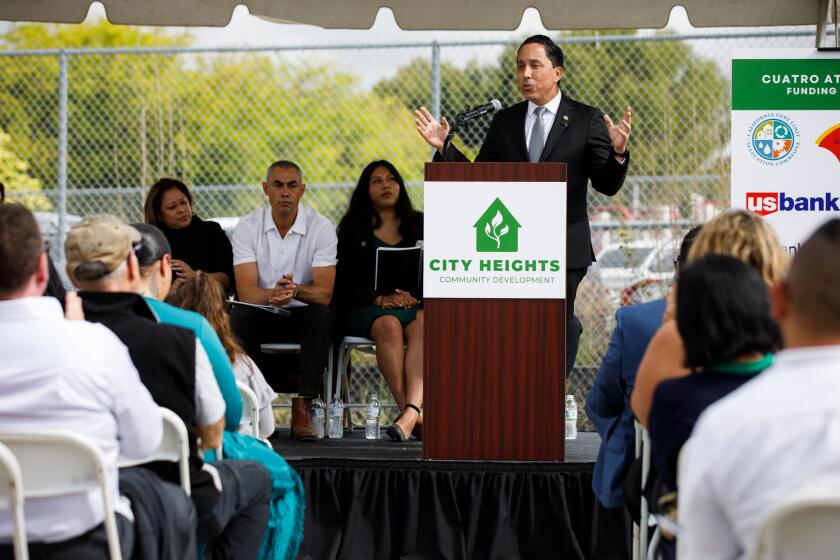San Diego County tells SDSU frats to cancel weekend party plans or be fined
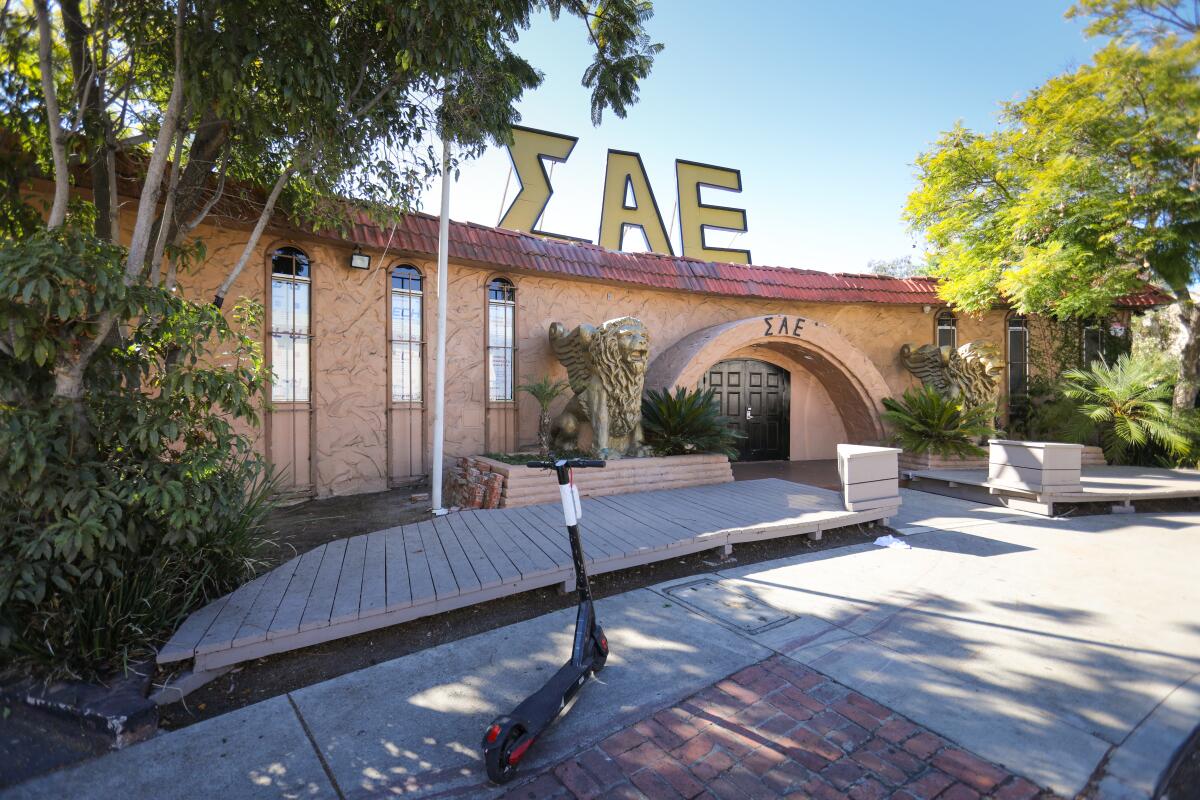
Eight gyms sue county, state seeking relief from restrictions
In an unprecedented move, San Diego County on Friday sent cease-and-desist letters to eight College Area homes where it says large weekend gatherings are planned in “blatant violation” of state public health orders. Six of the homes are described in the notices as San Diego State University fraternity and sorority houses.
The houses include those of Sigma Alpha Epsilon, Kappa Sigma, Pi Kappa Alpha and Gamma Phi Beta Sorority. According to the letters, each house faces criminal misdemeanor citations and $1,000 fines for each violation of California Department of Public Health guidance limiting private gatherings to people from no more than three households.
Kappa Sigma, according to an SDSU fraternity and sorority status page, is no longer recognized as a fraternal order on campus.
The university issued a stay-at-home advisory for all students on and off campus from Oct. 23 through Nov. 2, campus newspaper The Daily Aztec reported. SDSU has reported almost 1,300 COVID-19 cases since its fall semester began in August, according to the university’s coronavirus tracker.
SDSU issued a short statement early Friday evening indicating that it supports the orders, saying that it requested such actions after working with county public health officials to encourage adherence to public health guidelines that ban gatherings with attendees from more than three different households.
Since an outbreak started on the San Diego campus in late August, the university has hired extra private security to police college-area neighborhoods, and SDSU said Friday that the enforcement has now generated nearly 970 notices of alleged violations related to health orders.
In addition to continuing to enforce the health order, the university said it is moving forward with “disciplinary sanctions, including suspension and expulsion,” though, as has been the case in the past, no specifics were provided.
All eight letters, each signed by Dr. Wilma Wooten, the county’s public health officer, indicate that named fraternities, or those living at addresses not operated by fraternities, intend to “hold large gatherings” from Friday through Sunday.
“We were compelled to take this action because there is a great deal at stake,” Wooten said in a statement. “Let me be very clear, the region’s livelihood hangs in the balance and is directly tied to our individual and collective actions.”
Fraternity leadership did not shy away from the situation Friday night.
Lee Abed, president of the Interfraternity Council at SDSU, said he believes that suggestions that officially-sanctioned fraternity or sorority parties were on the docket for this weekend are little more than rumors.
“I have been in contact with all of the local fraternity chapter leaders multiple times this week, and I am fully confident that no fraternities on this campus were planning on doing any kind of parties this weekend,” Abed said.
That’s not to say, he added, that there has not been some buzz among the student body. Some social media posts, he said, have suggested that parties were happening, but they were not made by people who were actually members. Given that there are thousands of SDSU students not in fraternities or sororities living in the neighborhoods around campus, he said, there is no way to stop non-members from posting rumors about parties in places where they do not live.
“If someone was actually going to have a party, they wouldn’t put it on their Instagram,” he said.
But it does seem clear that there has continued to be some activity in neighborhoods, regardless of whether it is officially sanctioned or not.
“I’m almost surrounded by fraternities and they’ve constantly held parties in this area this fall,” said Molly Finberg, who lives on Rockford Drive. “They get really hostile when you do things like ask them to turn down the music. We’ve complained to the SDSU — sent them letters with the specific addresses.
“But nothing seems to get done about it.”
Meanwhile, the local coronavirus numbers are looking a bit more significant. Friday’s report included 471 additional cases and three more deaths. While local hospitalizations have continued to be relatively flat, the region has tallied 330 or more new cases five of the past seven days.
Two of the fraternities, Sigma Alpha Epsilon and Kappa Sigma, have repeatedly gotten in trouble with the college over the last several years. Sigma Alpha has been put on probation three times since 2014, for a range of infractions from purchasing a live goat that lived at the organization’s chapter house to unspecified safety and alcohol-related violations.
Kappa Sigma was placed on suspension until 2022 and their recognition as a student organization was revoked after an investigation following an event that led to a student being taken to a hospital for unspecified reasons.
Meanwhile, eight San Diego County gyms filed a lawsuit in federal court Tuesday against local and state officials over the coronavirus-related operational restrictions they say violate their constitutional rights.
The complaint, filed in the Southern District Court in San Diego, is directed against three state officials, including Gov. Gavin Newsom, several local mayors including San Diego Mayor Kevin Faulconer and the entire county Board of Supervisors, among others.
Owners of two of the gyms — Metroflex Gym in Oceanside and Ramona Fitness Center in Ramona — have already made news with their public fights against coronavirus restrictions. Lou Uridel, who owns Metroflex Gym, was arrested in May for opening in defiance of the public health order. He’s now running for mayor of Oceanside.
Peter San Nicolas, the owner of Ramona Fitness Center, became the first person criminally charged with health order violations in August, though he told The San Diego Union-Tribune Friday that those charges have since been dropped. Tanya Sierra, a spokeswoman for the San Diego County district attorney, confirmed charges were dropped in September.
“When the District Attorney’s Office filed misdemeanor charges in this case, we took the extraordinary step of advising the business owner we would consider dismissal of the charges if he came into compliance,” Sierra wrote in an email. “We very much understand the economic and emotional burden on businesses and individuals, and we empathize with the hardships they face amid the ongoing pandemic.”
District Attorney Summer Stephan, who levied the charges against San Nicolas, is named as a defendant in the new lawsuit.
The two gyms are joined by six others in the suit — San Diego’s Boulevard Fitness, Deadweight Strength, Convoy Strength and Being Fit, which has two locations and IB Fitness in Imperial Beach.
Gyms were allowed to reopen in August at 10 percent capacity.
San Nicolas said that even with reopening at 10 percent capacity, people have been scared away from coming to his gym.
“People are afraid to come into the gyms,” San Nicolas said when reached by phone Friday. “So many people have been scared away that we don’t have a problem with too many people coming in.”
San Nicolas said he couldn’t comment on the lawsuit but said he thinks the state public health orders, and the county’s adherence to them, are “political.”
“All of it’s so political,” he said. “It needs to be based on the data — the people most affected should be protected but those not affected should be able to safely operate their businesses and their lives.”
In the complaint, the plaintiffs argue that the public health orders are unconstitutional. They are just the latest such lawsuits in California.
In May, the South Bay United Pentecostal Church in Chula Vista filed a similar complaint, as did several churches around the state.
While the cases are making their way through the courts, the Chula Vista church’s request for an injunction did make it to the U.S. Supreme Court in May. The court denied the challenge 5-4, Chief Justice John Roberts voting with the four liberals on the court at the time.
“Although California’s guidelines place restrictions on places of worship, those restrictions appear consistent with the Free Exercise Clause of the First Amendment,” Roberts wrote.
In San Diego, rallies to reopen have become a regular weekend occurrence. On Saturday, the Thomas More Society is holding one at the County Administration Building with state Sen. Brian Jones, R-Santee, and South Bay United Pentecostal Church Bishop Arthur Hodges III. The group is urging state and local leaders to fully reopen businesses and churches.
The rally comes as the United States set a daily coronavirus case record with 97,088 new cases Friday.
Staff writer Gary Robbins contributed to this report.
Top headlines by email, weekday mornings
Get top headlines from the Union-Tribune in your inbox weekday mornings, including top news, local, sports, business, entertainment and opinion.
You may occasionally receive promotional content from the San Diego Union-Tribune.


